SPR Assay Service Overview
Surface Plasmon Resonance (SPR) is an optical technology that can detect biomolecular interactions in real time by measuring changes in the refractive index near a sensor surface. This allows for label-free analysis of binding response events between biomolecules, providing precise information on affinity determination, kinetic parameters, and equilibrium dissociation constants (Kd). SPR is widely used in high-throughput screening for drug discovery, fragment screening, and for screening therapeutic antibodies candidates, characterizing molecular interactions, and optimizing binding affinities.
SPR can analyze the binding specificity between biomolecules and perform concentration quantification, affinity determination, kinetic analysis, thermodynamic analyses, and antibody characterization without the need for additional detection reagents, truly reflecting interaction conditions. With its high-throughput, high flexibility, and high sensitivity, SPR has become an important diagnostic method in immunodetection, early drug development, drug-target interactions, and preclinical drug screening. KACTUS offers experienced surface plasmon resonance services, customized for various experimental protocols to meet the unique needs of your research.
SPR Assay Service Highlights
Diverse Sample Pairs
Full Assay Development
2-5 Day Turnaround
Regulatory Filing Support
Request Quote:
SPR Service Workflow & Timeline

Workscope Discussion
→

Contract Sign-off
→

Method Development
→

Sample Testing
→

Delivery
Standard Sample
Includes standard proteins and monoclonal antibodies up to 5 sample pairs
2-3 Days
Complex Samples
Includes VLPs, small molecules, or peptides up to 5 sample pairs
3-5 Days
Procedure Compliant with Regulatory Filing Support
At KACTUS, we are committed to ensuring that our SPR assay development services adhere to the highest standards of regulatory compliance. Our procedures encompass strict supply and management standards for reagents and consumables, meticulous usage records, calibration reports, and regular maintenance for equipment. We prioritize the reliability and integrity of our data through dual backup systems and maintain thorough experimental records in both electronic and paper formats. This rigorous approach guarantees the accuracy and dependability of our SPR analyses, providing you with reliable results for your research and development needs.

Reagents & Consumables:
Strict Material Supply Management

Equipment:
Usage Records, Calibration Reports, & Regular Maintenance

Raw Data Storage:
Dual Backup Systems for Enhanced Reliability

Experimental Records:
Documented in Both Paper and Electronic Copy
Key Features & Service Advantages
1. Various Protein-Analyte Combinations
SPR is a versatile tool suitable for analyzing the binding interaction between various types of molecules. We offer SPR analysis of the following sample pairs:

Antibody / Protein

Protein / Protein

Protein / Peptide

Protein / Small Molecule
2. Flexible Detection Methods
Covalent Immobilization:

Proteins are covalently immobilized on the chip surface through amine coupling. This coupling method involves a reaction with the amino groups of the ligand protein. Generally, amine coupling is used when there are label conflicts with the substances being analyzed.
Non-covalent Immobilization:
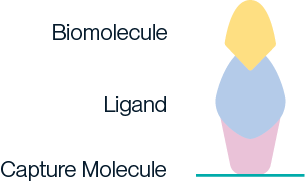
Non-covalent methods rely on specific, high-affinity interactions between the protein and a capture molecule on the chip. This approach is excellent for maintaining the correct orientation of the immobilized protein and for recycling the chip surface (except for SA-biotin).
3. Technical Expertise
KACTUS SPR Detection Platform is supported by a professional and experienced research team dedicated to developing and optimizing SPR assays. Through strict quality control of our extensive product catalog, our team has accumulated significant technical expertise in SPR analysis, ensuring the quality of our deliverables and an excellent customer experience.
Request Quote
SPR Analysis Case Studies
SPR Detection of VLP-Displayed Antigens
To address the challenge of conducting multiple affinity tests on difficult-to-express transmembrane proteins, KACTUS has specially developed biotinylated virus-like particle (VLP)-displayed antigens to meet the experimental requirements of SPR.
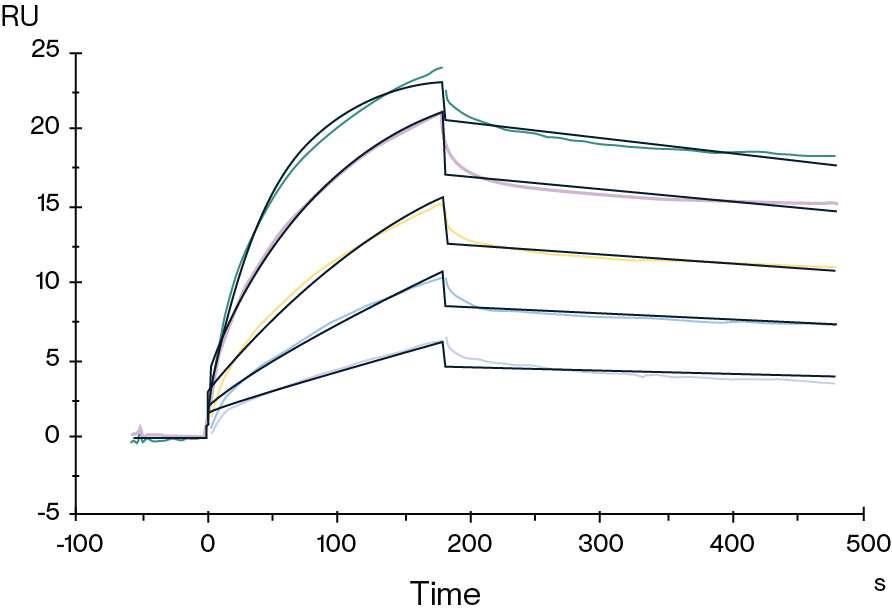
Figure 1. Biotinylated Human Claudin 18.2 VLP captured on CM5 Chip via Streptavidin can bind Anti-Claudin 18.2 Antibody with an affinity constant of 1.28 nM as determined in SPR assay.
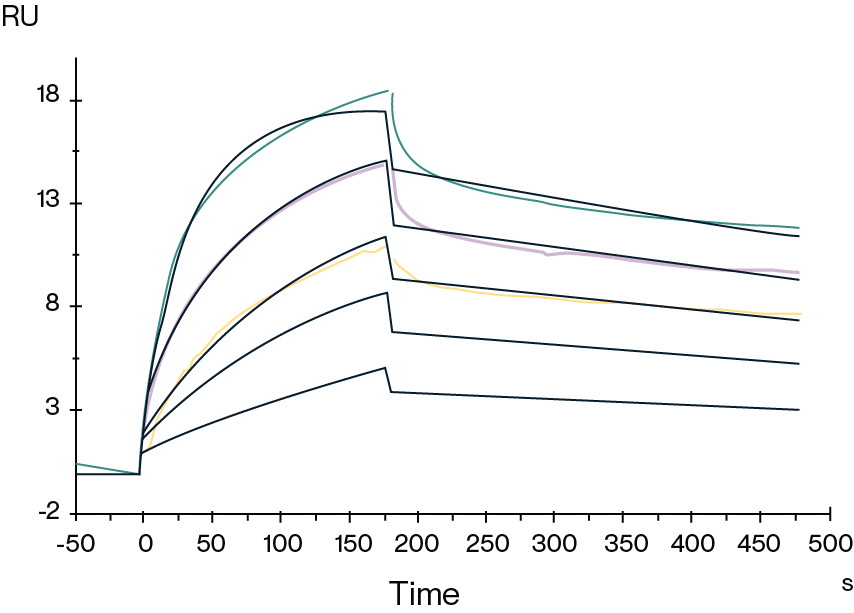
Figure 2. Biotinylated Human GPRC5D VLP captured on SA Chip can bind Anti-GPRC5D antibody, hFc with an affinity constant of 0.30 nM as determined in SPR assay.
Affinity Detection of Fc Receptor Proteins and Antibodies
Fc receptors are receptor proteins that can bind to the Fc region of antibodies, playing an important role in the screening and efficacy evaluation of antibody drugs. However, this binding interaction is often weak and difficult to effectively assess with conventional detection methods such as ELISA. Therefore, it necessitates the use of methods with higher sensitivity, such as SPR, for detection.
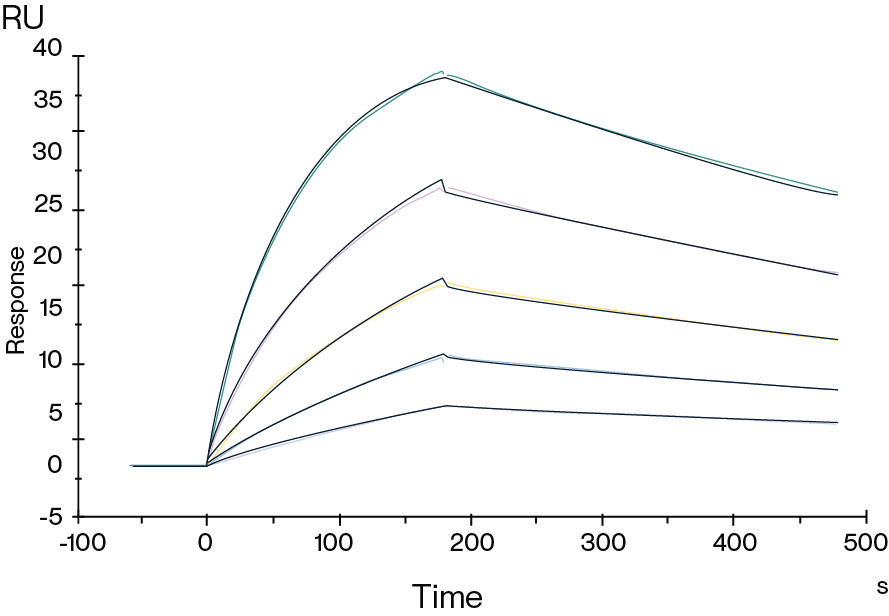
Figure 3. Human Fc gamma RI, His Tag captured on CM5 Chip via anti-his antibody can bind Trastuzumab with an affinity constant of 1.94 nM as determined in SPR assay.
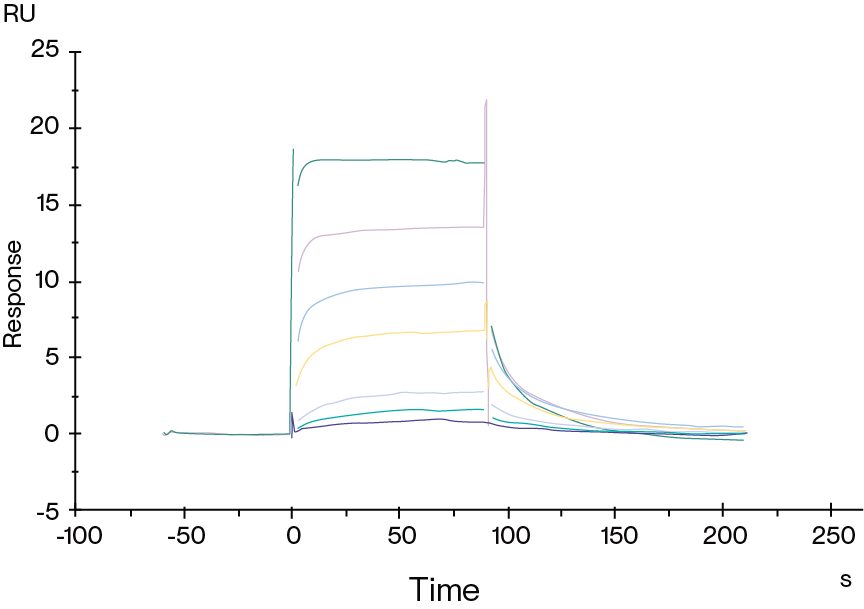
Figure 4. Human FcRn, His Tag captured on CM5 Chip via anti-his antibody can bind Human IgG1 Fc, No Tag with an affinity constant of 0.28 μM as determined in SPR assay.
Affinity Detection of TCR and MHC Peptide Complexes
The detection of the affinity between TCR and MHC peptide complexes is a crucial part of the development of TCR-related drugs, with SPR being a highly effective method for this detection. KACTUS offers SPR detection services to support the development of TCR-related drugs, in addition to our custom expression services for soluble TCRs.
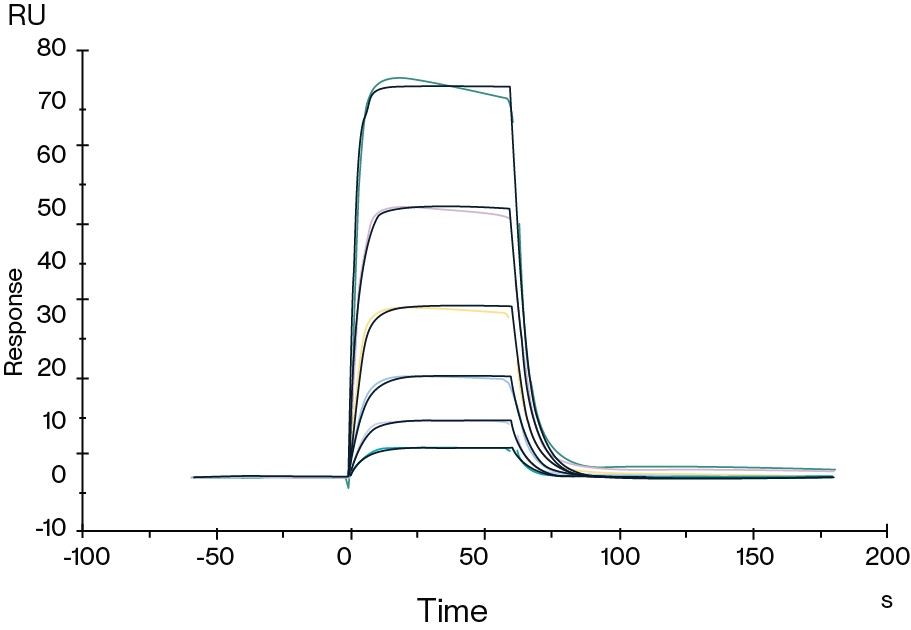
Figure 5. Human HLA-A*02:01&B2M&AFP (FMNKFIYEI) Monomer, His Tag captured on CM5 Chip via Anti-His Antibody can bind HLA-A*02:01&B2M&AFP (FMNKFIYEI) TCR with an affinity constant of 0.923 μM as determined in SPR assay.
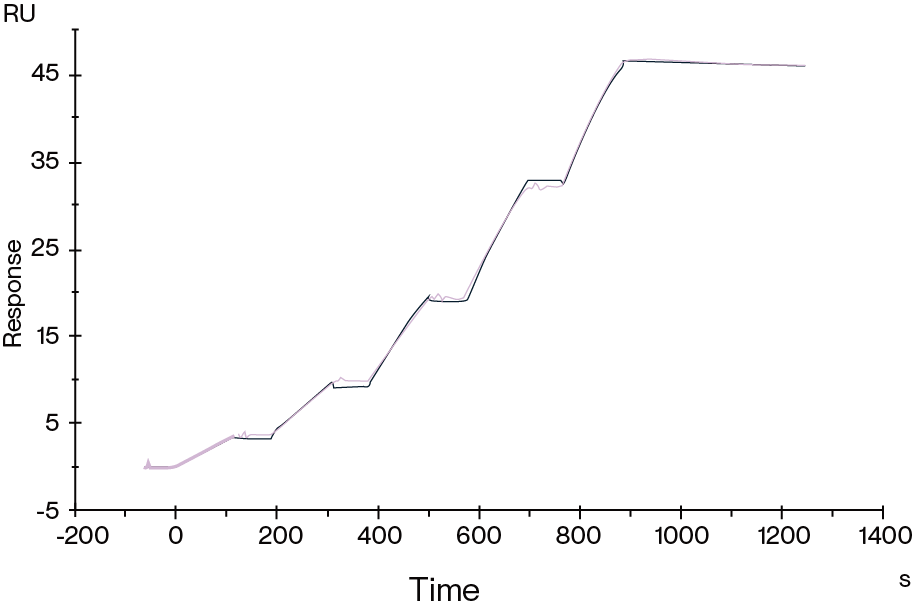
Figure 6. Human HLA-A*02:01&B2M&GP100 (YLEPGPVTA) Tetramer, His Tag immobilized on CM5 Chip can bind gp100 TCR&Anti-CD3 bispecific fusion protein with an affinity constant of 0.196 nM as determined in SPR assay.
Request Quote









